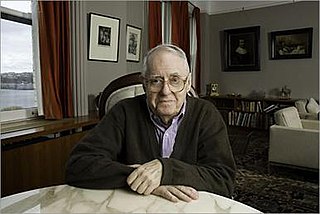A Quote by C. S. Lewis
Related Quotes
In any fairly large and talkative community such as a university there is always the danger that those who think alike should gravitate together where they will henceforth encounter opposition only in the emasculated form of rumour that the outsiders say thus and thus. The absent are easily refuted, complacent dogmatism thrives, and differences of opinion are embittered by the group hostility. Each group hears not the best, but the worst, that the other group can say.
Our dreams of bringing the whole of human history under the control of the human will are ironically refuted by the fact that no group of idealists can easily move the pattern of history toward the desired goal of peace and justice. The recalcitrant forces in the historical drama have a power and persistence beyond our reckoning.
[Dr. Constain James] refuted so well the aberrations of Darwinism.... [A system] which is repugnant at once to history, to the tradition of all people, to exact science, to observed facts, and even to reason itself, would seem to need no refutation. But the corruption of this age, the machinations of the perverse, the danger of the simple, demand that such fancies, altogether absurd though they are, should - since they borrow the mask of science - be refuted by true science.
In 56 A.D. [the apostle] Paul wrote that over 500 people had seen the risen Jesus and that most of them were still alive (1 Corinthians 15:6ff.). It passes the bounds of credibility that the early Christians could have manufactured such a tale and then preached it among those who might easily have refuted it simply by producing the body of Jesus.


































